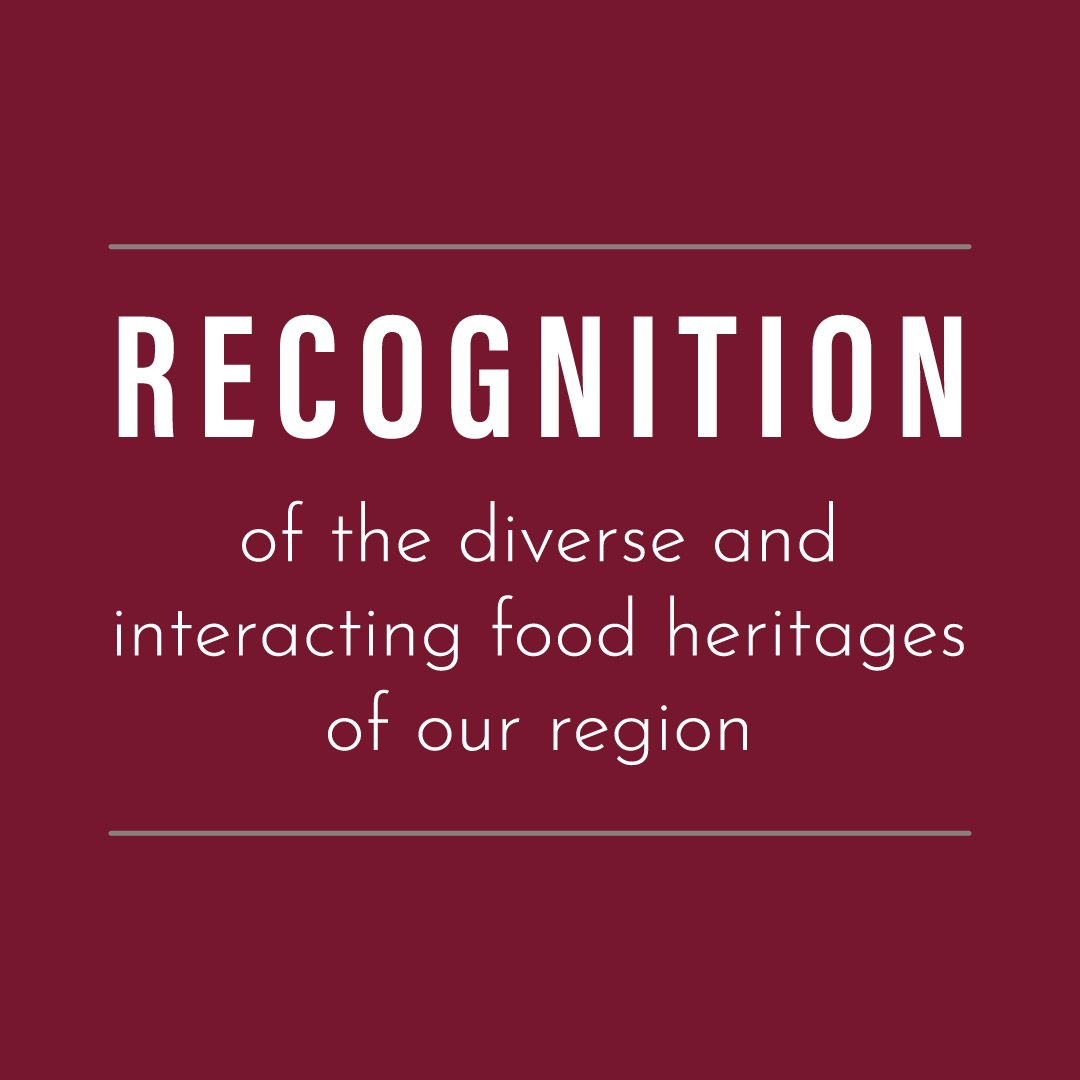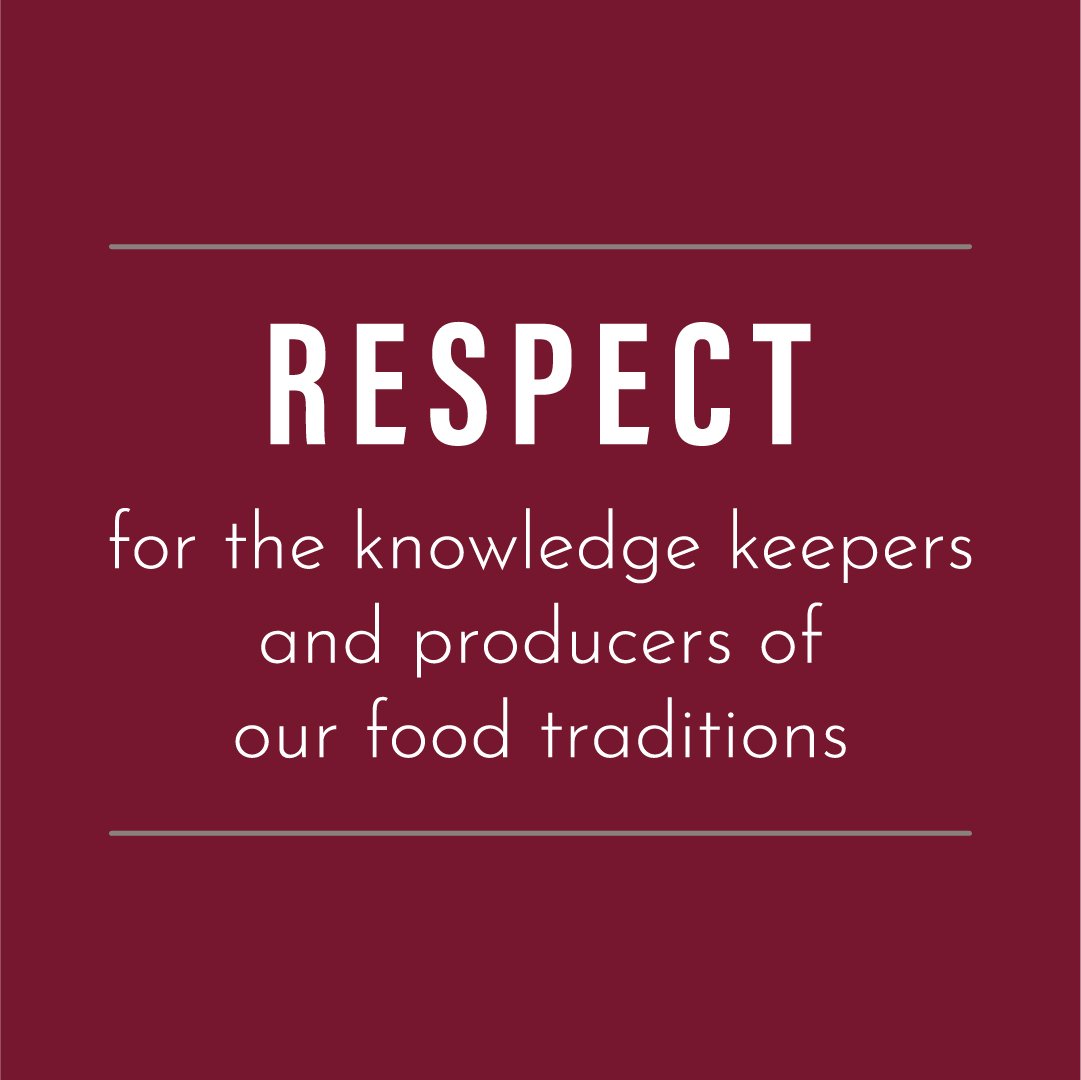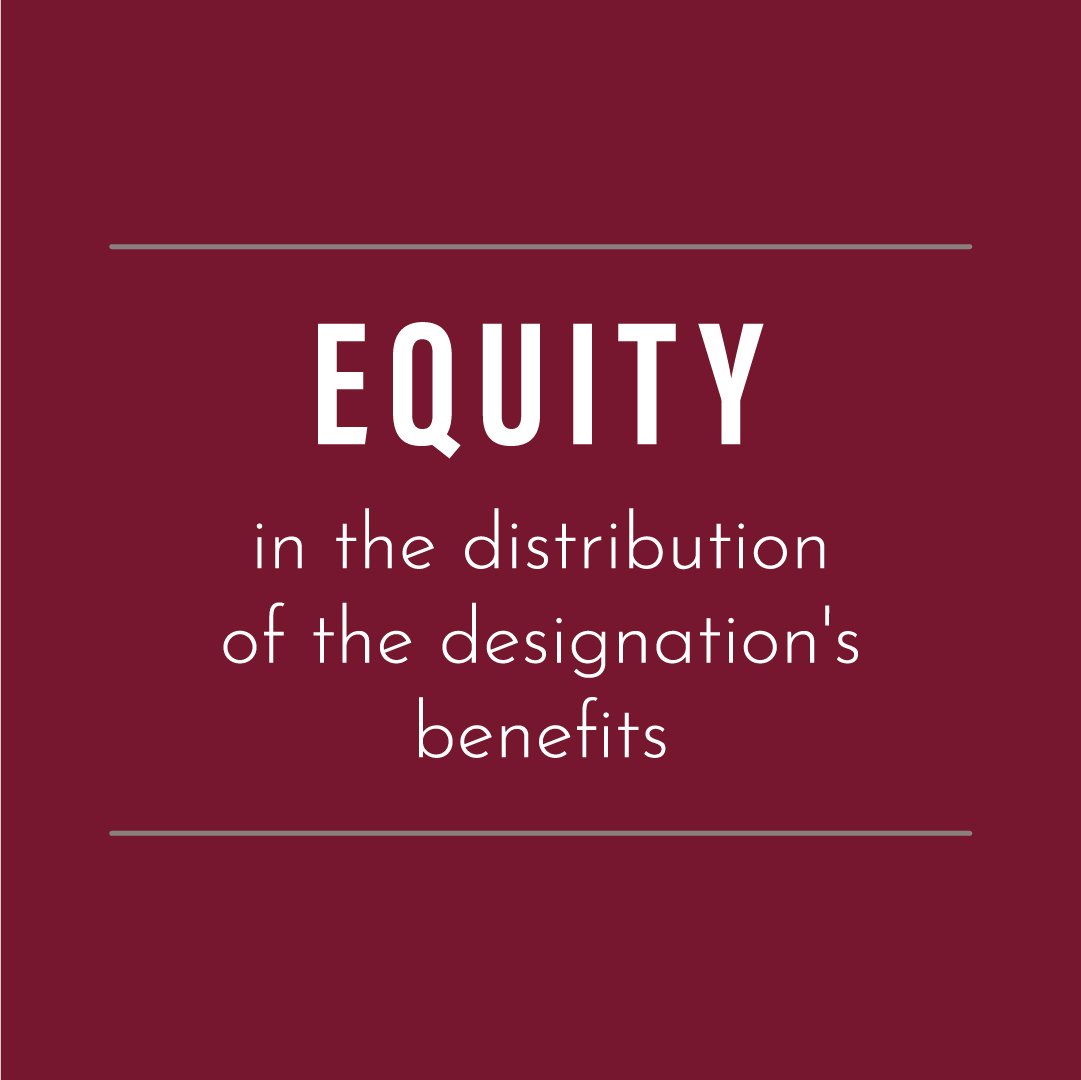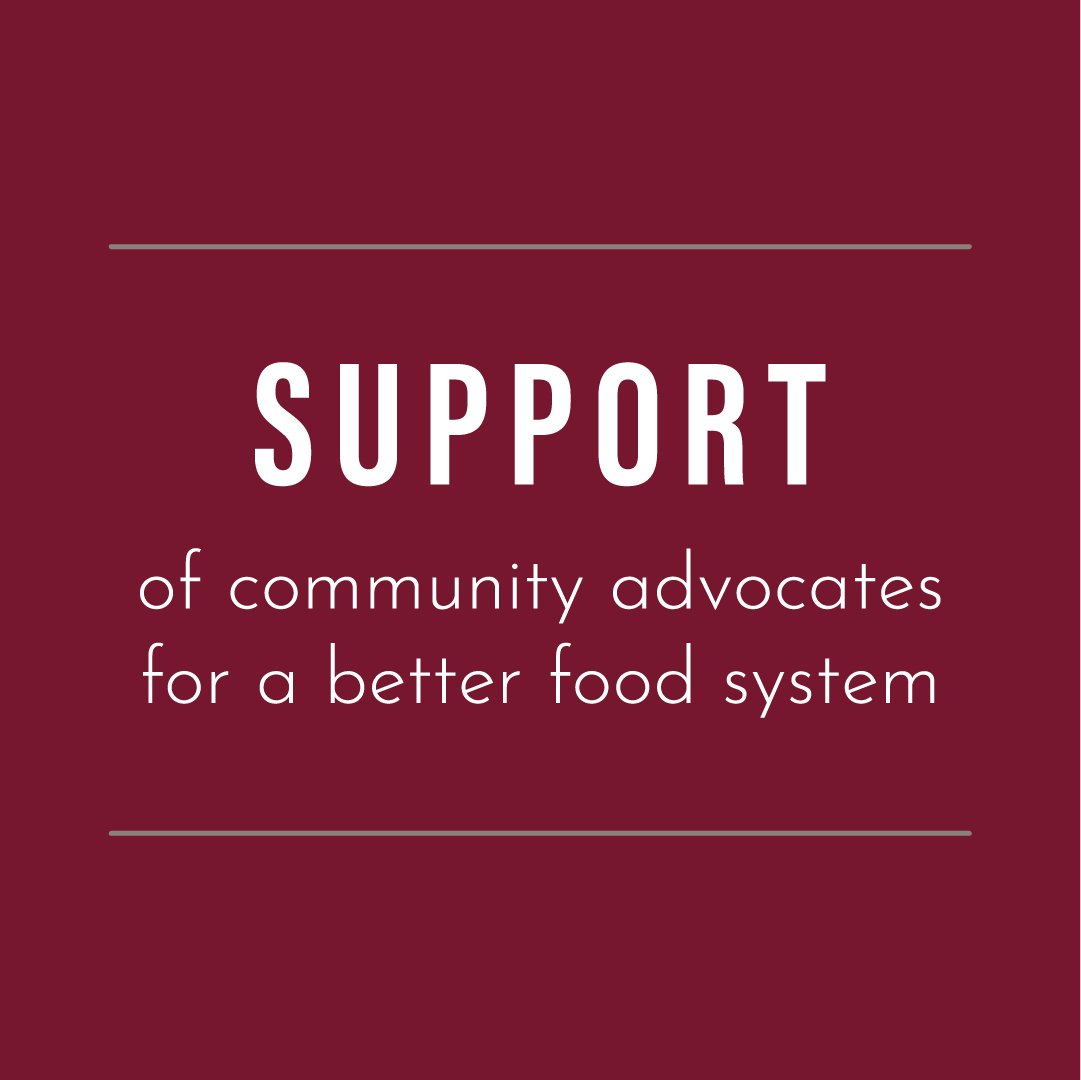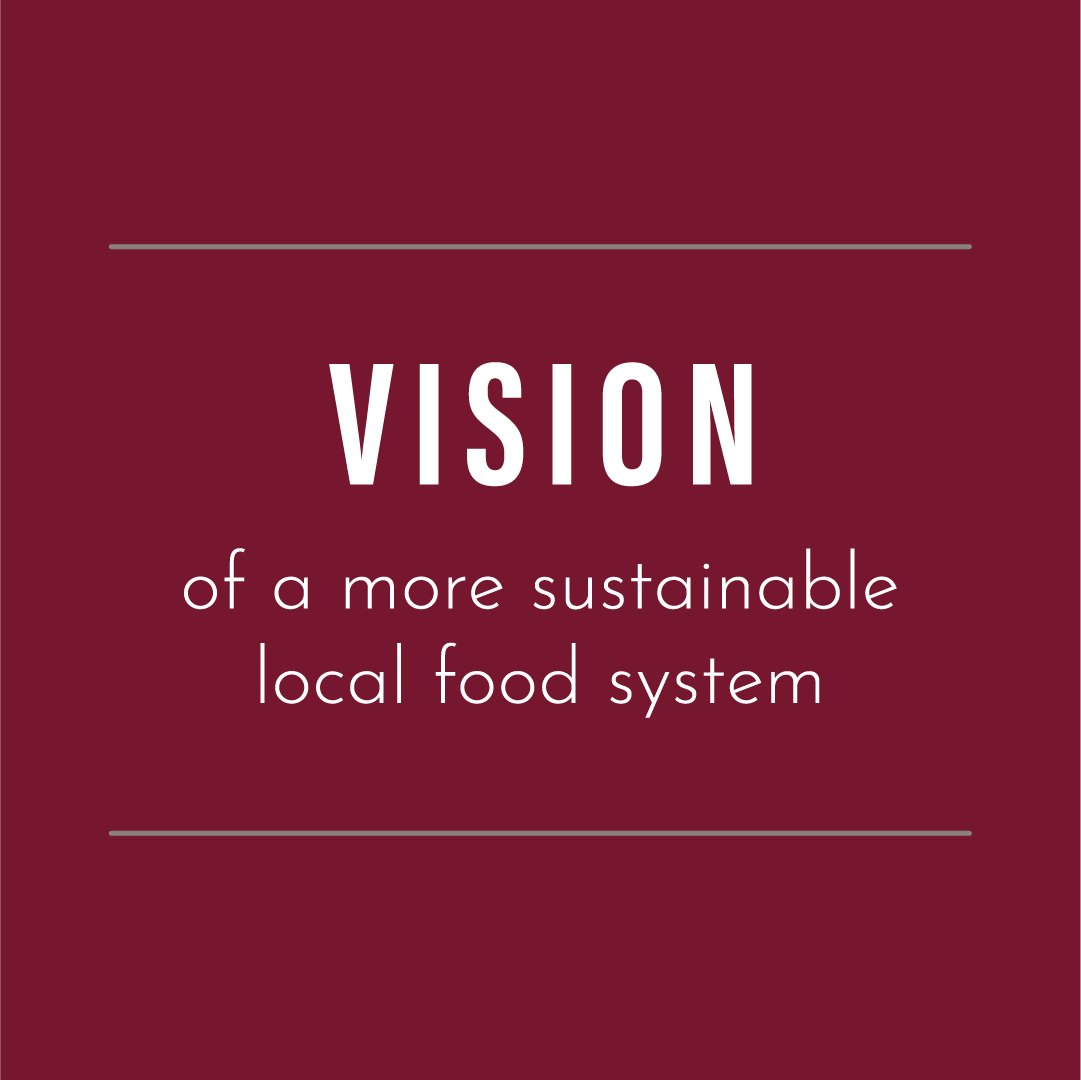
Click on the links below to learn about core values that we aspire to implement and communicate through our messaging, programs, events, and partnerships.
Recognition

RECOGNITION of the diverse and interacting food heritages of our region
Tucson is a diverse, multicultural borderland community in which Indigenous and immigrant foodways have influenced each other and continue to interact. These food stories represent the varied historical experiences and knowledge traditions that underlie our UNESCO designation. TCoG’s efforts help our food communities tell their stories to foster appreciation of their living food heritages and the culturally layered gastronomy that is fundamental to a shared sense of place.
How we implement and communicate recognition of our diverse food stories:
We recruit and train a diverse team of Chef Ambassadors including men, women, LGBTQ, Native American, Latino/a, and Anglo chefs who represent Tucson within our region and internationally at events in our sister Cities of Gastronomy.
The educational curriculum for Chef Ambassadors provides an understanding of the heritage foods representing different experiences and traditions of Indigenous and immigrant food communities, and how they have interacted in this borderland space.
Their presentations and demonstrations highlight the diverse heritage ingredients, foodways, regional dishes, and shared, culturally layered cuisine developed over our +5,000-year agricultural and gastronomic history.
TCoG showcases Indigenous and Latino/a chefs at the annual Mayor's State of the City Address, international events, and TCoG’s workshops and celebrations.
TCoG leads the annual Pueblos del Maíz Fiesta, a celebration of the important role of corn (maíz in Spanish) in the food heritages and cuisines of Tucson and three other UNESCO Cities of Gastronomy in the U.S. and Mexico.
We promote both Indigenous and historically introduced ingredients and food products in our directory of southern Arizona's artisanal foods.
Indigenous and Latino/a food businesses represent the majority of the vendors featured at our annual Pueblos del Maíz Fiesta, and a significant portion of our Certified Restaurants, Artisans, Caterers, and Retailers.
Where our Chef Ambassadors have Represented Tucson
Reception for Tucson COG at UNESCO headquarters, Paris, France (2017)
Meeting of UNESCO Creative Cities of Gastronomy, Belem, Brazil (2017)
D*NA Gastronomic Festival, Dénia, Spain (2017)
World Food Forum, Parma, Italy (2018)
Days of Bread, Krakow, Poland (2018)
International Gastronomy Festival, Gaziantep, Turkiye (2019)
Shunde Food and Culture Festival, Shunde, China (2019)
Macao International Gastronomy Forum, Macao, China (2019)
Art of Food Exhibit Opening, University of Arizona Art Museum (2020)
Pueblos del Maíz Fiesta, downtown and Kennedy Park, Tucson (2022, 2023)
Pueblos del Maíz Fiesta, Mérida, Mexico (2022, 2023)
North American Creative Cities Forum, Querétaro, Mexico (2022)
International Economic Development Council Summit, Star Pass Resort, Tucson (2023)
Pueblos del Maíz Fiesta, San Antonio (2023)
Arizona Alliance for Economic Development Conference, Roy Place Building, Tucson (2023)
Viva Tucson National Hispanic Heritage Month celebration, Historic Pima County Courthouse, Tucson (2023)
Historic Canoa Ranch, Green Valley (2023)
Respect

respect for the knowledge keepers and producers of our food traditions
We celebrate and support the people, businesses, and organizations keeping our food traditions alive and relevant for future generations.
How we honor and support those preserving our food traditions:
Through our Certifications of restaurants and artisan producers we encourage and promote local food businesses using heritage ingredients, making heritage dishes, or creating new dishes incorporating heritage ingredients and traditional practices.
With the creation of the Jim Griffith Foodways Keeper Award in partnership with the Southwest Folklife Alliance, we have established an annual presentation to honor home cooks and food artisans who have led the way in preserving our region’s food traditions.
In collaboration with the International Traditional Knowledge Foundation we showcase unique bread traditions based on the heritage grains of southern Arizona in the international Breads of the Creative Cities project.
In 2019, in partnership with the UA Southwest Center, we hosted the “Grain by Grain” heritage grain forum featuring local farmers, millers, and bakers reviving heritage grains in the Santa Cruz River Valley of southern Arizona.
We publish the Baja Arizona Artisanal Food Products directory of artisanal food products made with unique regional ingredients, encouraging locals and visitors to acquire products that will support local producers (2018, 2019, 2023 editions)
In partnership with the Mission Garden, San Xavier Co-op Farm, Southwest Folklife Alliance, Santa Cruz Valley National Heritage Area, Native Seeds/SEARCH, Cinema Tucson, and Tucson Museum of Art, our annual Pueblos del Maíz Fiesta has included free educational events about traditional foods and foodways of the Arizona-Sonora Borderlands, including traditional food processing demonstrations, cooking demonstrations, slide lectures, discussion panels, film screenings, photography exhibits, publications, exhibits, and tours.
The first recipient of the Jim Griffith Foodways Keeper Award (2023)
Josefina Lizarraga is a self-taught ethnobotanist and traditional food knowledge teacher, in addition to being a folk artisan of paper flowers. She is a cultural activist and long-time cook using heritage ingredients from the Tucson area and Sonora. She also generously shares her knowledge about how to grow and cook with heritage fruit trees and garden herbs and vegetables, including many of the plants growing in the Mission Garden. She has owned restaurants and a beloved west-side flower shop, led the revival of the Día de San Juan Fiesta which traditionally welcomed the monsoon rains, and shared her knowledge and plantings of many varieties of heritage fruit trees and other traditional plants growing in her extensive home garden on Tucson’s west side.
Equity

Equity in the distribution of the designation's benefits
The UNESCO City of Gastronomy designation is a powerful brand that we leverage to broadly and equitably benefit our entire community.
How our programs bring wide value to the community:
TCoG conducts direct outreach to engage minority-owned food businesses, including Spanish-language outreach to southside and westside restaurants and artisans, to inform them about our Certifications program and assist them in applying.
We showcase and provide revenue opportunities to Indigenous and Latino/a food businesses through our Certifications program, artisanal foods directory, annual Pueblos del Maíz Fiesta, tasting expos, and other programs and events.
Partnerships with Startup Tucson, UA McGuire Center for Entrepreneurship, and UA FORGE enable us to produce Heritage Food Entrepreneurship workshops and The Business of Heritage Foods panels providing free business education for food entrepreneurs and early-stage food businesses focusing on heritage ingredients.
A new program in partnership with Local First Arizona provides Putting Sustainability on the Menu workshops—free, bilingual workshops teaching affordable ways for locally owned food businesses to improve their sustainability practices and bottom lines at the same time.
We produce award-winning short videos highlighting food stories of our region for promotion of food tourism to broadly benefit local businesses and the community
The Broad Benefits of Food Tourism
How do local businesses and the community broadly benefit from increased food tourism since the UNESCO City of Gastronomy designation?
Economic growth
Higher revenues and new business opportunities for restaurants, food markets, artisans, hotels, local farmers, and tour operators
Job creation
Higher demand and higher wages for skilled workers in the hospitality sector
Cultural preservation and promotion
More retail value reaching upstream to producers/knowledge keepers of traditional foods
Increased visibility and promotion
Raised profiles of local businesses as visitors seek out authentic food experiences
Networking and collaboration
Incentives for partnerships and joint ventures between different types of businesses
Community development
Revitalization of neighborhoods as new businesses open and existing ones expand
Support

Support of community advocates for a better food system
We assist grass-roots efforts to improve food security, food justice, and food system sustainability through partnerships, promotion, and grant seeking. In partnering with other local organizations, we leverage our voice and amplify our partners’ messages by providing high-visibility platforms to increase public awareness of problems and opportunities in our local food system.
How we spotlight food system issues and partner with community advocates for solutions:
(2016) Conference on “Food & Water Sustainability in Arid Lands: Dialogues across Contemporary and Traditional Knowledge” in partnership with International Traditional Knowledge Institute
(2016) Food Justice, Faith, and Climate Change Forum in partnership with the City of Tucson, Community Food Bank of Southern Arizona, Edible Baja Arizona, UA Center for Regional Food Studies, UA Institute of the Environment
(2017) Workshop on planning “Planning, Growing, and Harvesting Edible Urban Forests” in partnership with Linking Edible Arizona Forests Network
(2018) Panel discussion on the benefits of the pre-colonial "Mesoamerican Diet," in partnership with the Agave Heritage Festival and UA College of Social & Behavioral Sciences
(2018 – 2019) Food Justice Expos at the Tucson Meet Yourself Folklife Festival, in partnership with the Southwest Folklife Alliance
(2020-2021) USDA planning grant application submitted for “Growing the Capacity for Urban Agriculture in Metropolitan Tucson” in partnership with the Community Food Bank of Southern Arizona, City of Tucson, Pima County, UA Desert Laboratory, ASU Spatial Analysis Research Center, UA Dept. of Agriculture and Resource Economics, and UA Dept. Nutritional Sciences (unsuccessful, but other funding sources now being sought)
(2022) Documentary film screenings on the challenges faced by Mexican farmers preserving traditional maize varieties, in partnership with Cinema Tucsón and Film Fest Tucson.
(2022) Screenings of documentary films produced by Local First Arizona, telling stories of our local food system through personal narratives of Arizona farmers and growers who are working to build a more resilient and sustainable local food supply.
Organizations featured at our Food Justice Expos, 2018-2019
Café 54
Compost Cats
Community Food Bank of Southern Arizona
Desert Harvesters
Felicia's Farm
Flowers & Bullets
Iskashitaa Refugee Network
L.O.C.A.S.
Mission Garden
Native Seeds/SEARCH
Pima County Food Alliance
San Xavier Cooperative Farm
Tierra Y Libertad
UA School Gardens Program
Vision

Vision of a more sustainable local food system
We recognize environmentally conscious leaders among local restaurants, increase awareness of sustainability and ethical issues in the local food value chain, and encourage the community to imagine a food future we want.
How we are promoting and implementing food sustainability:
Restaurants setting positive examples in Sustainability Leadership are recognized through our Certifications program, and in a guide to the most sustainable local restaurants in partnership with Tucson Foodie.
Sustainability has been a special and ongoing topic of our “The Business of Heritage Foods” discussion panels in partnership with UA FORGE.
We partner with Local First Arizona to provide “Putting Sustainability on the Menu” workshops with free, bilingual training on affordable food business practices that improve both sustainability and bottom lines.
At our Pueblos del Maíz Fiesta, we provide compostable serving containers at no charge for our vendors to serve from.
At our events, more than a ton of food waste is diverted from landfills to be recycled or composted each year.
In Tucson and other Cities of Gastronomy, we present cooking demonstrations on how traditional dishes can be made in the future with climate-adapted heritage ingredients.
In partnership with the Pima County Food Alliance, we are advocating for the City of Tucson to create a reduced water rate for urban farmers.
With the annual Food Visionary Award, TCoG partners with Si Charro! to recognize Southern Arizonans who are creatively reimagining new relationships with food.
The first recipient of the Food Visionary Award
Feng-Feng Yeh is an artist and chef who developed the new annual Chinese Chorizo Project, which remembers and celebrates an early form of food fusion in Tucson—a unique and extra-spicy version of chorizo sausage made in many of the more than 100 Chinese markets throughout Barrio Viejo during the late 19th and early 20th centuries, when that multicultural neighborhood was thriving. Her revival of the almost forgotten story of Tucson’s Chinese chorizo reminds us of the history of cooperation and respect between two cultures and their interacting food stories. The Chinese Chorizo Project is also raising funds for a chorizo sculpture near the barrio.

